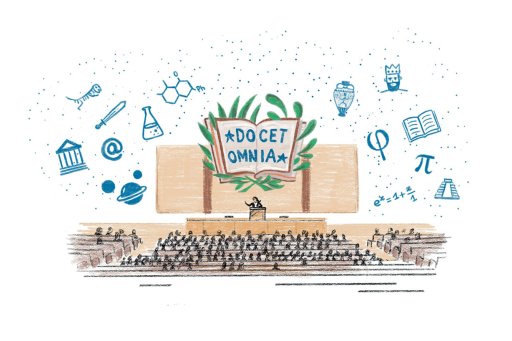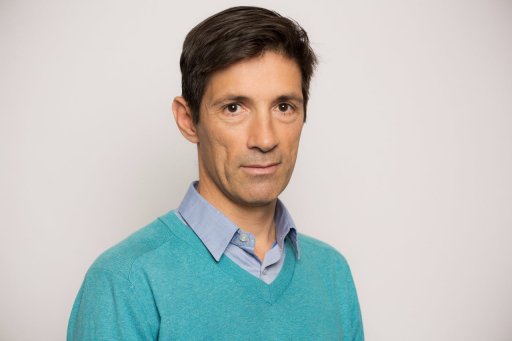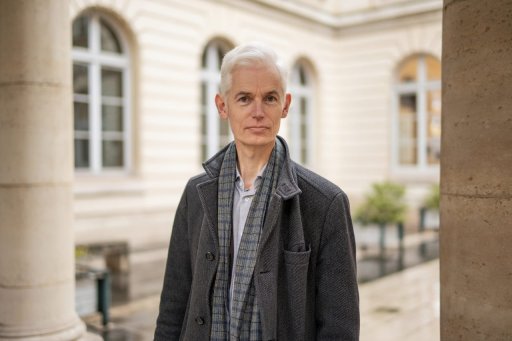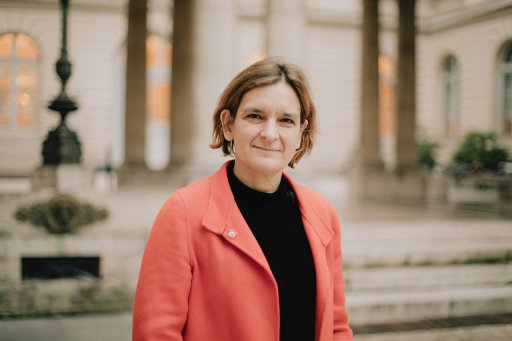A historian specializing in the Enlightenment, Antoine Lilti invites us to take a fresh look at this historical period whose thinking still influences us today, whether in the political or economic spheres, or in our conception of ecology. In 2022, he will become holder of the History of the Enlightenment, 18th to 21st Century chair at the Collège de France.
You explain that we are witnessing a " revival " of the spirit of the Enlightenment. How does this phenomenon manifest itself ?
Antoine Lilti : The Enlightenment has been the focus of renewed attention for the past twenty years. They weren't forgotten, but they were somewhat neglected, probably because they seemed too consensual. There was relative agreement on the achievements of the Enlightenment, such as freedom of expression, scientific progress, secularization and tolerance. All these points were no longer really debated.
But two phenomena occurred. On the one hand, the Enlightenment has once again been criticized and contested, not only by reactionary currents such as certain nationalist populisms, but also by post-colonial thought, which points to the limits of the Enlightenment and accuses it of compromising with European colonialism. On the other hand, the uncertainties of our times are resurrecting the philosophical debates of the Enlightenment through controversies on secularism, the ecological crisis, social networks and conspiracy.
Can we say that contemporary debates on conspiracy are pitting supporters of an Enlightenment spirit against others ?
The fight against conspiracy is often waged in the name of the Enlightenment, to re-establish the rights of reason and science against rumor and fake news. In fact, the report by the Commission on the Fight against Disinformation, published this autumn, is entitled Les Lumières à l'ère numérique . Its authors consider that the ideal of rational public debate embodied by the Enlightenment is threatened by the " informational chaos " created by the digital revolution.
The reality is more complex. The Enlightenment was founded on the idea that everyone should be able to argue and make up their own minds, which implies questioning traditional authorities in favor of criticism. In some respects, those who denounce conspiracies also claim this ideal of criticism and free examination of established truths. But they take this logic to the extreme (and sometimes to the point of absurdity), whereas the Enlightenment sought to preserve certain authorities, particularly scholarly and intellectual ones.
What interests me is that this debate is replaying controversies that were very important in the 18th century : how far can freedom of expression go ? Where should criticism stop ? What is the legitimacy of scholarly institutions ? How can we combat those who use freedom of the press to spread false news or stir up evil passions ? The philosophers of the Enlightenment were well aware that nothing is more difficult than creating an enlightened public space. Their debates deserve to be rediscovered, beyond the commonplaces.

We live in a period of doubt and uncertainty. Can this situation be compared to that of the Enlightenment and the French Revolution ?
The 18th century, like our contemporary world, is a period of profound change. The world was changing very fast. The Church was gradually losing its hold on beliefs and mores ; traditional societies were entering the modern era with the rise of cities, trade and consumerism ; books and newspapers were becoming more widespread ; and Europeans were extending their influence to other continents. Philosophers, scholars and writers were aware that they were living in a new era, a veritable social, economic and cultural revolution. The whole point of the Enlightenment was to account for these transformations, and to reflect on the contradictions and ambivalences of modernity.
Of course, our situation is different. We have neither the same tools, nor the same experiences, nor the same illusions. And yet, in some respects, our contemporary concerns are not so different. For example, we often believe that the philosophers of the 18th century were optimistic, that they saw the future as an era of indefinite progress. In reality, they were also worried. They believed in the virtues of knowledge, what they rightly called the " lumières ", but they wondered how to ensure that the progress of knowledge would be accompanied by moral progress in society, enabling people to be happy. In this sense, we have much to learn from the debates of the Enlightenment, when progress was still a question, not a religion.
How can the Enlightenment help us tackle the current debate on the ecologicalcrisis ?
We often think of the ecological crisis as the result of a " cult" of scientific and technical progress, which originated in the eighteenth century with thinkers like Condorcet, author of Esquisse d'un tableau des progrès de l'esprit humain. In reality, the theories of progress with which we are most familiar date back to the 19th century. They coincide with the arrival of the industrial revolution, the rise of the ideology of modernization and the philosophy of history. This vision of progress was embodied, as early as the 19th century, by thinkers such as Auguste Comte. We have projected this vision onto the eighteenth century, even though the debates of that period were far more complex. In fact, the Enlightenment also saw the emergence of a form of ecological awareness, attentive to man's place in nature and its preservation. We might think of Jean-Jacques Rousseau and Bernardin de Saint-Pierre, or lesser-known figures such as Pierre Poivre, who was administrator of the Ile de France (now Mauritius). Recent work has enabled us to rediscover these debates and understand that environmental reflexivity has a long history. Rather than blaming the Enlightenment, we can try to reflect today on environmentally-friendly forms of progress without abdicating the emancipatory role of knowledge.

Do you think the work of historians has helped to shape the epinal image we have of this era ?
Historians, but also philosophers and literary historians, have sometimes presented the Enlightenment as the origin of all the values of modern democratic societies. Often, this has meant defending them at times of great ideological tension, using them as a tool of intellectual combat. It's important to bear in mind that the Enlightenment is not a historical object like any other. They do not simply refer to a historical period, but also to an intellectual movement that has become a political legacy. That's why we also need to write the history of this historiography of the Enlightenment. Especially as the Enlightenment is not just an object of scientific study, but also a theme widely disseminated in society through schools, political discourse and media representations. Think of Voltaire's oft-quoted phrase : " I don't agree with what you say, but I'll fight to the death so that you can express yourself ". All the experts know that he never uttered it. Yet it continues to circulate, because it sums up a certain image of the Enlightenment - identified with unconditional freedom of expression - an image that is not really wrong, but is a gross oversimplification.

How can we reintroduce depth into the historical study of this founding period of modernity ?
Rather than trying to reduce the Enlightenment to a philosophical doctrine, I think it's better to approach it as a space for debate and controversy. Most 18th-century authors disagreed on many subjects. So we need to restore this plurality and diversity. Furthermore, the history of the Enlightenment must not remain an abstract inventory of ideas. It is inseparable from the economic, social and cultural context of the time, and from the profound transformations that shook European societies in the 18th century, with consequences throughout the world.
We also need to take a broader view of the geography of the Enlightenment. For a long time, they were essentially identified with the Parisian encyclopedists. At best, we then studied their " influence " or their "diffusion " in the rest of Europe. Today, we study the Enlightenment as a European phenomenon, with local variations that have their own particularities (the Scottish Enlightenment, for example, around David Hume and Adam Smith).
We can go further and study the circulation of works and ideas outside Europe : in North America, of course, but also, from the 18th century onwards, in Spanish America, in Mexico for example, or in India as it came under British control.
What can this extra-European knowledge contribute to the debate on the Enlightenment ?
Encounters with far-flung societies and cultures also played an important role in shaping the ideas of the time. The 18th century, for example, was marked by the great explorations of the Pacific, such as those of Louis-Antoine de Bougainville and James Cook. My lecture this year will focus on this " discovery " of Tahiti, which is just as much a Tahitian discovery of Europe, and its repercussions.
Moreover, the Enlightenment is not only European. There are many different kinds of Enlightenment, depending on the circumstances, which may have been hybridized with local cultural or philosophical traditions through translation and reinterpretation. Meiji Japan in the 19th century is a very interesting example. Here, the Enlightenment is seen as a deliberate import of Western knowledge, but can also draw on certain Japanese intellectual traditions. In other contexts, the Enlightenment is more of a colonial legacy, but has sometimes been turned against the colonizers. Reflecting on these processes, without denying the singularity of the European Enlightenment, should make it possible to pluralize the Enlightenment and think differently about its claim to universality.

Democracy is in crisis. Do you think the Enlightenment is currently threatened by this crisis ?
The Enlightenment - that ideal of emancipation through knowledge, based on the autonomy of individuals and their ability to decide what is right - is indeed facing many challenges. They must be defended, but without becoming locked into a rigid conception that does them no justice and itself becomes dogmatic. The role of the historian is not to say what the Enlightenment should be for the 21st century, but to show that, in the past, the Enlightenment fuelled much richer and more complex debates than is sometimes imagined, and that it is possible to draw inspiration from it today.
Let's take an example. Some critics claim that the philosophers of the Enlightenment were racist, colonialist and defended slavery, and that this discredits their ideals. This is a caricatured view that must be challenged, as it completely underestimates the fact that the Enlightenment was also one of the sources of abolitionism and anti-colonialism. Nevertheless, it is a mistake to refuse to acknowledge that many eighteenth-century philosophers, and not the least, believed in the superiority of Europe and wrote contemptuous, even openly racist, commentaries on African or Asian populations. The intellectual history of the Enlightenment must strive to understand these contradictions, without concealing the grey areas. The aim is not to judge or condemn, but to reflect on the ambivalences of modernity without fetishizing the Enlightenment.
It's another way of being faithful to their spirit, which is anything but dogmatic. The great texts of this period are dialogical, open, self-critical and ironic. It's no coincidence that they often take the form of fiction. In the end, what's most interesting about the Enlightenment is perhaps not the answers it provided, but the range of questions and debates it raised, and the way in which it did so.
Interview by Emmanuelle Picaud










